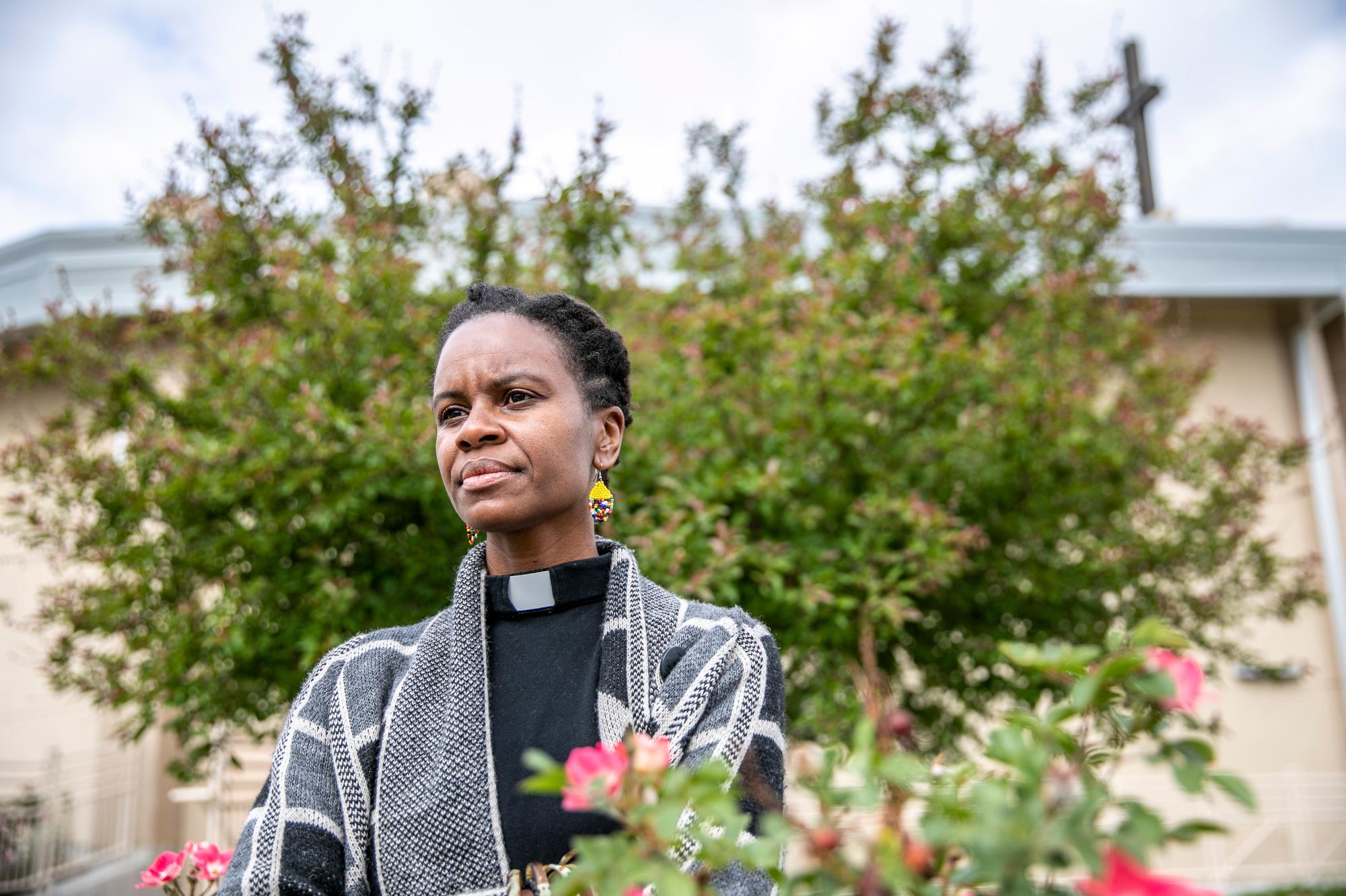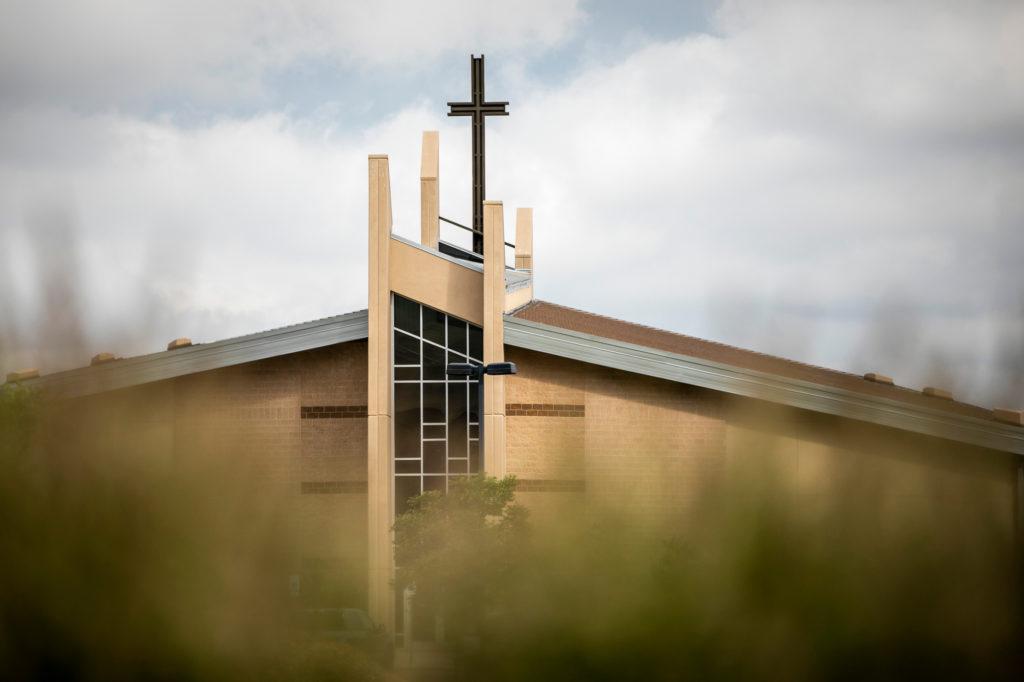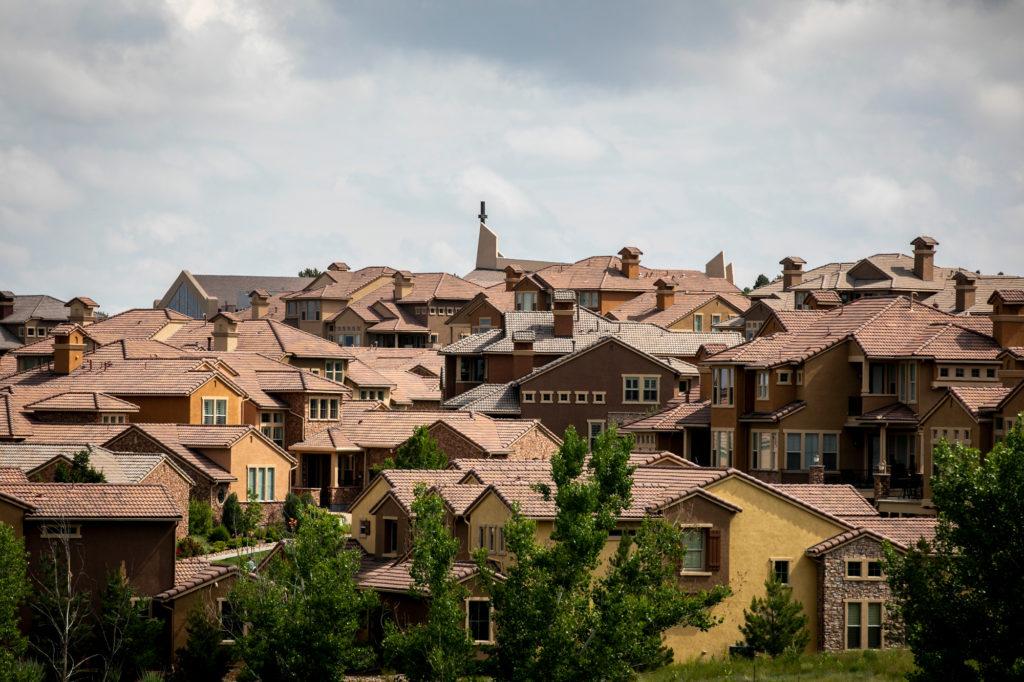
Last August, Rev. Akilah Bixler optimistically moved with her two kids and husband from New York for their next adventure in Colorado. Bixler was appointed to a Denver-area church. But less than a year later, they were fed up, packed their belongings and moved back.
Bixler is African American and said she learned pretty quickly that Colorado is nothing like New York.
“My experience here in Colorado with there being so much less diversity, I feel it and I feel racism,” she said. “It’s in the air that we breathe and it’s in the water that we drink.”
The United Methodist Church appointed her to St. Andrew in Highlands Ranch. It’s a predominantly affluent, white Denver suburb. Bixler felt like it was her calling from God. So she eagerly packed up her family and trekked across the country.
On their second day in Colorado, the family went shopping for a car. That experience foreshadowed what the next year would be like for the family as people of color in the suburbs south of Denver.

“We arrived from New York City and we didn’t have a car,” she recalled. “We had an idea of the car that we wanted.”
They went to the dealership where a salesman said they didn’t have what they were looking for and instead showed them something else. A base-model vehicle. No bells. No whistles. They were shown another vehicle but the situation wasn't any better.
“I’m trying to get behind the wheel to drive it and the plastic encasing that goes underneath the steering wheel fell down,” Bixler remembered. “It was like, ‘OK, I think we’re going to go ahead and go.’”
They went to another showroom. But there, they waited for almost half an hour before someone came out of the saleroom to see if Bixler’s family had been helped.
“It was just this idea of like, ‘OK, people of color. They’re not really serious,’ or I don’t know what they thought,” she said. “No one was there willing to help us.”
They bought a car at that dealership anyway. Looking back, Bixler said she’s not quite sure why they did considering how they were treated.
It was nothing compared to what would come for her kids.
Bixler has two kids — a rising 6th- and 10th-grader — who are biracial.
“When they’re in their classes, they’re often the only person of color,” she said. “For them to be in these spaces and places and then trying to have to be the voices of Latinx folks as well as Black folks in every single conversation was beyond exhausting.”
It was also exhausting for her kids to have friends who would talk to them sometimes but wouldn’t acknowledge them on school grounds. Bixler said her daughter would talk to one classmate on the school bus every day.
“The second that they got off that school bus that other girl would not speak to our daughter,” she said. In the case of her son, he had a friend that the Bixler family would run into from time to time in the neighborhood.

“When my son and my spouse went to the school, this child, who went out of his way to say hello to us when his grown-ups weren't around, but when his grown-ups were there and my child said hello to him, he didn't respond,” she said. “He acted like he didn't know who our child was.”
After a while, Bixler accepted that she and her family were the targets of racism.
“I finally decided just to stop pretending it away and just stop acting like it’s not an individual person that’s just being rude that particular day,” she said.
It was too much.
Bixler declined to discuss two incidents involving her kids that she said were the final straw for her family. But she said the prejudice and racism they experienced over the last 10 months caused wounds too deep to tough it out any longer.
She didn’t renew her appointment in Colorado or take another appointment in the Mountain Sky Conference, which has churches in Colorado, Montana, Utah, Wyoming and a portion of Idaho. Instead, Bixler returned with her family to New York at the end of June for extension ministry, where she will do work independent from a specific congregation.
Bixler had confided in the Rev. Valerie L. Jackson, lead pastor of Cameron United Methodist Church who is also a Black clergy member in Denver.
“I witnessed Akilah’s anguish over this,” Jackson said. “She was excited for her gifts and her graces to be seen, acknowledged and embraced, so it’s been a huge disappointment for her to come to the realization that this is not the time for her to be here.”
Bixler called her experience in Colorado bittersweet.
“We don't have to live like this,” she said. “Enough is enough. And that it was a great experience. It was a great adventure. We learned a lot.”









